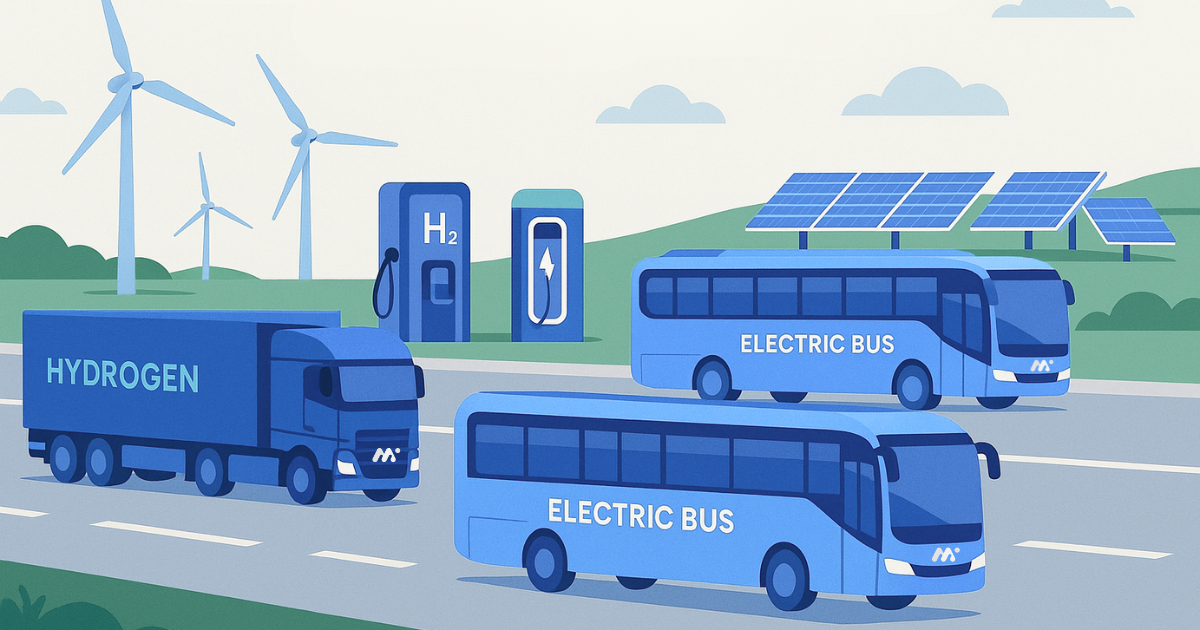Zero-emission transport and legislation: what carriers need to know by 2030

What legislative frameworks will shape transport by 2030
▪️ The European Green Deal: the 2050 climate neutrality target. ▪️ Fit for 55: a commitment to reduce greenhouse gas emissions by 55% by 2030. ▪️ CAFE regulation and the Clean Vehicles Directive: Member States’ obligation to promote zero-emission vehicles, especially in the public sector. ▪️ Slovak legislation and national plans: alternative fuels strategy, action plans for the development of hydrogen and electricity infrastructure, subsidy schemes to support transport operators.Impact on carriers and fleets
The legislation has a number of practical implications:
-
– the gradual tightening of vehicle emission standards,
– minimum shares of zero-emission vehicles in public procurement,
– a ban on the sale of internal combustion cars from 2035, which will have a major impact on long-term investment plans,
– the need to systematically plan for fleet renewal in advance of these deadlines.
Why start now
Carriers that embark on the transformation early will gain several advantages:
-
▪️ better access to subsidies and support mechanisms,
▪️ positive image effect and competitiveness,
▪️ the possibility to adapt gradually – the infrastructure for both hydrogen and electric propulsion is being developed step by step,
▪️ experience from pilot projects that reduce the risk of later mass implementation.
How MIP can help
Mobility & Innovation Production has real experience in both the development and homologation of emission-free vehicles:
- SK080ES – the first urban low-floor electric MIDI bus in Slovakia, developed and homologated electric bus, deployed in real operation.
- Mobility H2 Bus – a homologated hydrogen bus, awarded the Gold Medal at MSV Brno and verified in real operation.
- Hydrogen tractor – the first EU homologated hydrogen-powered tractor, tested in cooperation with major logistics partners.
In addition to its own products, MIP offers system integration of drives, i.e. a complete tailor-made solution – from the analysis of needs, through the design and selection of the right technology, to homologation and commissioning with legislative support.
Conclusion
Zero-emission transport is no longer just a trend, but a legislative reality that will shape the entire industry by 2030. Carriers that start preparing early will gain a technological and competitive edge.
👉 Mobility & Innovation Production is a partner that understands both technology and legislation – and can combine them into tailor-made solutions for each carrier.